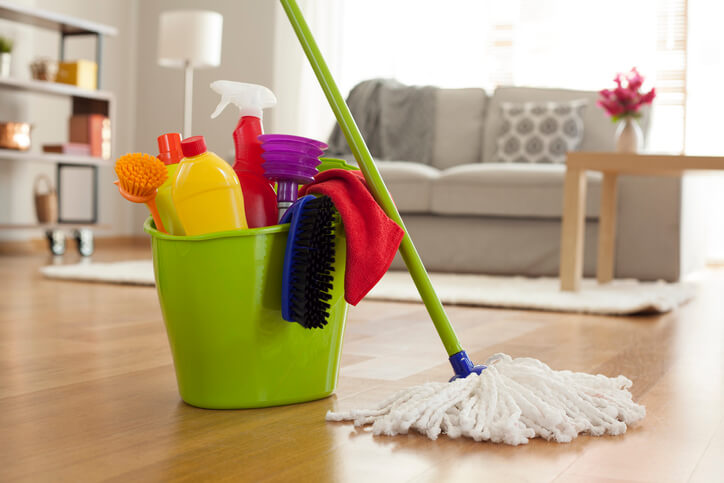Guide to Cleaning Jewelry
A home guide to cleaning jewelry. Valentine's Day is around the corner; chances are you've got some sparkly jewelry in your future.
A diamond is forever only if you take good care of it. Gold, silver, diamond rings, opals, pearls, and gemstones have special cleaning and storage requirements. Fine jewelry warrants the finest fare.
This guide to cleaning jewelry will help keep your precious pieces sparkling.
Take Jewelry Off
No jewelry - not even your wedding ring - should be worn all the time. All stones (including diamonds and sapphires) can chip. And gold, silver, and platinum are easily scratched. Harsh chemicals can damage both stones and metals.
So take rings off when you work or exercise hard. (If you lose a stone, you'll never find it.)
You should also take them off when you clean the house or garden. Household cleaners can damage beautiful stones and settings, and you risk catching them on something.
You'll also want to shed the family jewels when you bathe, swim, or soak in the hot tub (chlorine can damage stones and metals) and when you go to the beach - salt is also hard on these pieces.
We often don't take these pricey pieces off for fear of losing them.
Guide To Cleaning Jewelry of Oily Buildup
Clean your jewelry occasionally to remove grunge around settings and remove oily buildup that dulls the sheen.
Cleaning tips: Most jewelry can be cleaned by soaking it for a few minutes in a bowl of lukewarm water with a little dish-washing detergent and scrubbing it gently with a toothbrush. (Never use toothpaste - it's too abrasive.)
Cleaning jewelry by type:
- Silver: Avoid getting it on the stones if you use silver polish or another jewelry cleaner. Polish with a soft all-cotton cloth, as paper can scratch the silver.
- Gold: Let soak in soapy water. If gold chains become tangled or knotted, apply baby oil and unravel with needles.
- Diamonds: A little ammonia in water will remove any oily film.
- Crystals (rubies, sapphires, etc.): Soak for a few minutes in a warm dish detergent and water solution, scrub gently with a toothbrush, and polish dry with a clean cotton cloth.
- Opaque stones (turquoise, malachite, onyx, lapis, etc.): re rocks, not crystals, so they are absorbent. Do not soak or expose them to ammonia or any other chemicals. Just polish them with a soft, dry cloth.
- Opals: Clean these fragile stones with soapy water and quickly wipe dry them. Do not clean in an ultrasonic cleaner and do not expose to ammonia.
- Pearls: Do not soak pearls. Wipe clean with a moist cloth. The beads get more lustrous with exposure to the skin's natural oils. Do not wear these absorbent jewels in the shower or while cooking. Restring once a year.
- Emeralds: Cleaning these soft stones requires nothing more than lint-free cotton cloth.
Storing Jewelry Safely
Resist the urge to toss your jewelry into the bottom of a jewelry box. Not only do chains get tangled, but they can damage the gems.
Diamonds and sapphires can scratch metals and other gemstones. Here's how to store your good stuff:
- Store jewelry individually in soft fabric bags in a cool, dark place.
- Light causes silver to tarnish, so individually store silver rings, bracelets, and earrings in tarnish-preventing bags.
- Store gold jewelry in chamois to protect its luster.
- Store bead necklaces flat because the silk string will stretch over time.
- Do not store pearls in plastic bags; chamois is best.
- Store opals in a cool, dark place; they will dry out if exposed to light.
- Clean Home
- Clean
- Jewelry Cleaning








